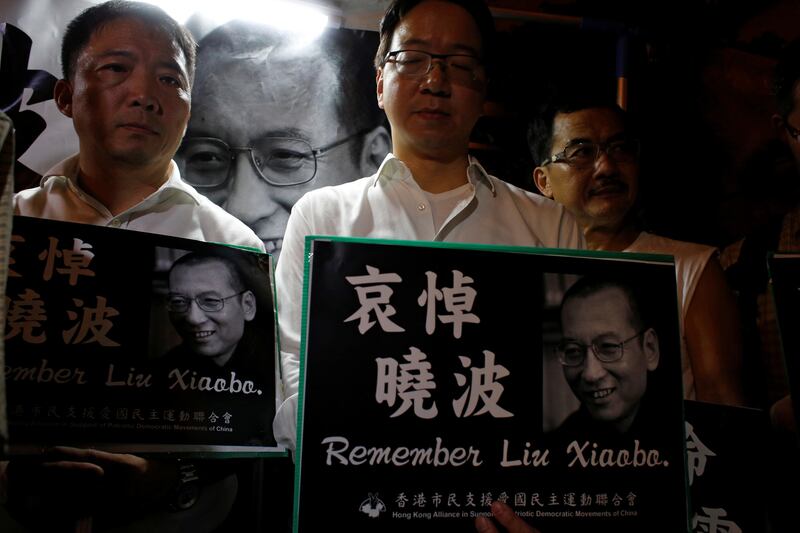Chinese dissident and Nobel Peace Prize laureate Liu Xiaobo died from multiple organ failure on Thursday following a battle with liver cancer, after officials ignored international pleas to let him spend his final days free and abroad. He was 61.
Liu was jailed for 11 years in 2009 for "inciting subversion of state power" after he helped write a petition known as Charter 08 calling for sweeping political reforms.
The writer's death silences a government critic who had been a thorn in the side of the authorities for decades and became a symbol of Beijing's growing crackdown on dissenting voices.
Liu's death puts China in dubious company as he became the first Nobel Peace Prize laureate to die in custody since German pacifist Carl von Ossietzky, who passed away in a hospital while held by the Nazis in 1938.
He was recently moved from prison to a hospital in the north-eastern city of Shenyang to be treated and was denied his final wish to be treated abroad.
The Shenyang Bureau of Justice said on its website that Liu had suffered multiple organ failure and efforts to save him had failed.
Despite being given multiple forms of treatment, it said, his illness had continued to worsen.
Western governments, human rights groups and local activists had urged authorities to free Liu and allow him to be treated overseas.
Germany had offered to treat Liu, calling for a "signal of humanity" from China. The United States also said it was willing to take him in.
But officials insisted that Liu was receiving treatment from top Chinese doctors since being granted medical parole following his diagnosis in late May.
The leader of the Norwegian Nobel Committee, which awards the peace prize, said the Chinese government bore a heavy responsibility for his death.
"We find it deeply disturbing that Liu Xiaobo was not transferred to a facility where he could receive adequate medical treatment before he became terminally ill," said Berit Reiss-Andersen.
"The Chinese Government bears a heavy responsibility for his premature death," she said.
In response to calls to allow Liu to leave China, the foreign ministry repeatedly said other countries should not interfere in Beijing's internal affairs and said Liu was being treated by renowned Chinese cancer experts.
Beijing allowed two foreign doctors, from the US and Germany, to visit Liu on Saturday. They later said they considered it was safe for him to be moved overseas.
As a gaunt Liu lay in his sickbed, a video was leaked showing the western doctors praising their Chinese counterparts — a scene that was denounced as "grotesque propaganda" by Human Rights Watch.
The German embassy said the video seemed to show that security organs were "steering the process, not medical experts".
Liu was arrested nine years ago after co-writing Charter 08, a bold petition that called for the protection of basic human rights and reform of China's political system.
He was also known for his role in the 1989 Tiananmen Square protests in Beijing.
His wife, Liu Xin, was placed under house arrest in 2010, but she was allowed to see him at the hospital in his final days.
Her fate will now worry human rights groups, which had urged the government to free her alongside Liu Xiaobo.
mnesty International Secretary General Salil Shetty said efforts must now be made to ensure his wife is no longer persecuted, adding Liu had fought tirelessly for human rights.
"He did so in the face of the most relentless and often brutal opposition from the Chinese government. Time and again they tried to silence him, and time and again they failed," Mr Shetty said.
"We must do all we can to end Liu Xin's illegal house arrest and surveillance and ensure that she is no longer persecuted by the authorities."





